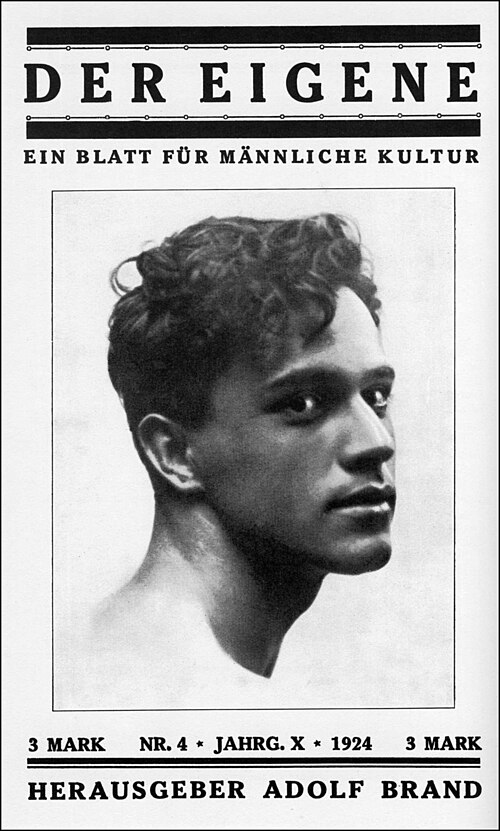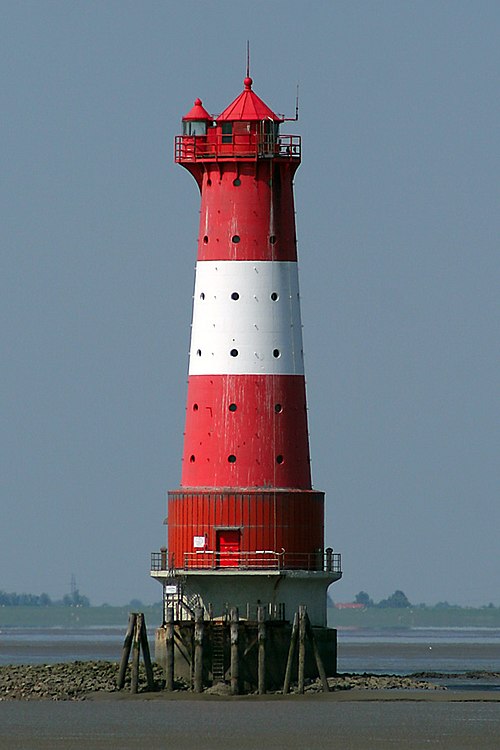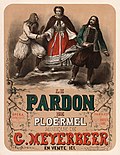Portal:Germany
Welcome to the Germany Portal!
Willkommen im Deutschland-Portal!

|

|

| |
Germany (German: Deutschland), officially the Federal Republic of Germany (German: Bundesrepublik Deutschland), is a country in Central and Western Europe, lying between the Baltic and North Sea to the north and the Alps to the south. It borders Denmark to the north, Poland and the Czech Republic to the east, Austria and Switzerland to the south, France to the southwest, and Luxembourg, Belgium and the Netherlands to the west.
Germany includes 16 constituent states, covers an area of 357,596 square kilometres (138,069 sq mi) and has a largely temperate seasonal climate. With nearly 83 million inhabitants, it is the second most populous state of Europe after Russia, the most populous state lying entirely in Europe, as well as the most populous member state of the European Union. Germany is a very decentralized country. Its capital and most populous city is Berlin, while Frankfurt serves as its financial capital and has the country's busiest airport.
In 1871, Germany became a nation-state when most of the German states unified into the Prussian-dominated German Empire. After World War I and the Revolution of 1918–19, the empire was replaced by the parliamentary Weimar Republic. The Nazi seizure of power in 1933 led to World War II, and the Holocaust. After the end of World War II in Europe and a period of Allied occupation, two new German states were founded: West Germany, formed from the American, British, and French occupation zones, and East Germany, formed from the western part of the Soviet occupation zone, reduced by the newly established Oder-Neisse line. Following the Revolutions of 1989 that ended communist rule in Central and Eastern Europe, the country was reunified on 3 October 1990.
Germany is a federal parliamentary republic led by a chancellor. It is a great power with a strong economy. As a global leader in several industrial, scientific and technological sectors, it is a major trading nation. The Federal Republic of Germany was a founding member of the European Economic Community in 1957 and the European Union in 1993. Read more...
Selected article

Ludwigsburg Palace, nicknamed the "Versailles of Swabia", is a 452-room palace complex of 18 buildings located in Ludwigsburg, Baden-Württemberg, Germany. Its total area, including the gardens, is 32 ha (79 acres) – the largest palatial estate in the country. The palace has four wings: the northern wing, the Alter Hauptbau, is the oldest and was used as a residence of the Duke of Württemberg; the east and west wings were used for court purposes and housing guests and courtiers; the southern wing, the Neuer Hauptbau, was built to house more court functions and was later used as a residence.
Eberhard Louis, Duke of Württemberg, appointed Philipp Joseph Jenisch to direct the work, and construction began in 1704. In 1707, Jenisch was replaced by Johann Friedrich Nette, who completed most of the palace and surrounding gardens. Nette died in 1714, and Donato Giuseppe Frisoni finished much of the palace façades. In the final year of construction, Eberhard Louis died, and the Neue Hauptbau's interiors were left incomplete. Charles Eugene's court architect, Philippe de La Guêpière, completed and refurbished parts of the New Hauptbau in the Rococo style, especially the palace theatre. Charles Eugene abandoned the palace for Stuttgart in 1775. Duke Frederick II, later King Frederick I, began using Ludwigsburg as his summer residence in the last years of Charles Eugene's reign. Frederick and his wife Charlotte, Princess Royal, resided at Ludwigsburg and employed Nikolaus Friedrich von Thouret to renovate the palace in the Neoclassical style. Thouret converted much of Ludwigsburg's interiors over the reign of Frederick and the later life of Charlotte. As a result of each architect's work, Ludwigsburg is a combination of Baroque, Rococo, Neoclassical, and Empire style architecture. (Full article...)
Selected picture
Related portals
- Parent portals
- Regional
- History
 Holy Roman Empire (900–1806)
Holy Roman Empire (900–1806) East Germany (1949–1990)
East Germany (1949–1990)
- Neighbouring countries
Anniversaries for August 11

- 1464 – Death of Nicolaus Cusanus
- 1519 – Death of Johann Tetzel, seller of indulgences
- 1919 – The constitution of the Weimar Republic is signed into law
- 1973 – Death of chemist Karl Ziegler, recipient of the 1963 Nobel Prize in Chemistry
Did you know...
- ... that some of the interior decoration of the Ernst-Haeckel-Haus is inspired by jellyfish?
- ... that operatic tenor Klaus König, who performed for more than 30 years, also worked as a house painter?
- ... that attempted crimes with no chance of success are still punishable by law in Germany?
- ... that German equestrian Hermann Weiland competed for Croatia at the 1992 Summer Olympics, but marched with Guam during the opening ceremony?
- ... that the first volume of Felix Klein's books on the history of mathematics does not mention the three women who originally transcribed his lectures?
- ... that German athlete Leander Wiegand received a scholarship to play American football at an American college that had never seen him play?
- ... that the deportation of Soviet Germans was one of the largest ethnic-cleansing operations of the 20th century?
- ... that novelist Barbara Frischmuth argues that humans should not presume to rule over other species?
Selected cuisines, dishes and foods

Topics
Categories
Things you can do

A list of articles needing cleanup associated with this project is available. See also the tool's wiki page and the index of WikiProjects.
Here are some tasks you can do. Please remove completed tasks from the list.
- Requests: German Archaeological Institute at Rome, Deutsche Familienversicherung, Dietlof von Arnim-Boitzenburg, Rolf von Bargen, Hennes Bender, Eduard Georg von Bethusy-Huc, Rolf Brandt (1886–1953), Jan Philipp Burgard, Rudolf Epp, Lisa Feller, Georg Arbogast von und zu Franckenstein, Georg Gafron, Ferdinand Heribert von Galen, Gundula Gause, Wolfgang von Geldern, Karl-Heinz Hagen, Herbert Helmrich, Nils von der Heyde, Monty Jacobs (1875–1945), Siegfried Kauder, Klimbim Matze Knop, Wolfgang Kryszohn, Claus Larass, Isidor Levy (1852–1929), Markus Löning, Tobias Mann, Mathias Müller von Blumencron ,Günther Nonnenmacher, Nord bei Nordwest, Günter von Nordenskjöld, Anke Plättner, Hans Heinrich X. Fürst von Pless, Günter Prinz, Ulrich Reitz, Hans Sauer (inventor), Franz August Schenk von Stauffenberg, Paul Schlesinger (1878-1928), Hajo Schumacher, Der Seewolf (1971), Otto Theodor von Seydewitz, Christoph Sieber (comedian), Dorothea Siems, Werner Sonne, Udo zu Stolberg-Wernigerode, Christoph Strässer, Joseph von Utzschneider, Hedda von Wedel, Jürgen Wieshoff, Hans Wilhelmi, Dietmar Wischmeyer, Alexandra Würzbach
- Unreferenced: especially Unreferenced BLPs
- Cleanup: 53541 issues in total as of 2024-03-03
- Translate: Articles needing translation from German Wikipedia
- Stubs: the largest stub category is Category:German history stubs; see also 114 articles in Category:German MEP stubs
- Update: Deutsches Wörterbuch
- Portal maintenance: Update News, Did you know, announcements and the todo list
- Orphans:
Orphaned articles in Germany

- Photo: Take/Add requested photographs
- Help assess the quality of 915 unassessed articles
Associated Wikimedia
The following Wikimedia Foundation sister projects provide more on this subject:
-
Commons
Free media repository -
Wikibooks
Free textbooks and manuals -
Wikidata
Free knowledge base -
Wikinews
Free-content news -
Wikiquote
Collection of quotations -
Wikisource
Free-content library -
Wikiversity
Free learning tools -
Wikivoyage
Free travel guide -
Wiktionary
Dictionary and thesaurus





































